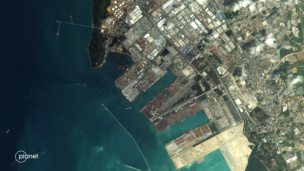The US military command focused on deterring China will beef up its space footprint next month, the Space Force’s #2 officer, Gen. David “DT” Thompson, said Tuesday.
The US Indo-Pacific Command will establish a Space Force component command on Nov. 22, said Thompson, who is the service’s vice chief of space operations, at a Mitchell Institute for Aerospace Studies event. It will be the three-year-old service’s first group sent to a command that oversees a geographic area, rather than placing Guardians within existing Air Force components.
Component command, defined
Combatant commands oversee personnel in the region they control but don’t have permanently assigned troops. To fill their ranks, services send members to the combatant command as a component command. Indo-Pacific Command, which directs American troops in that region, already has component commands from the Marine Corps, Navy, Army, and Air Force.
Adding a Space Force group will make sure the service understands what the broader military needs operationally in orbit, and also ensure leaders in the Pacific “truly and deeply understand the space capabilities available to them,” Thompson said.
Why does this matter?
One word: China. Thompson said Beijing could threaten “an extinction-level event” for America’s space capabilities with its anti-satellite weapons, 260+ spy satellites, and an “incredible pace” of innovation.
How good? “Their space capabilities are still not quite as good as ours, but they are really, really, really good. We have to assume that they are a peer competitor in that regard,” he said. “I can’t really sit here and tell you today, at this point in time, when will they be a threat? They are a threat today.”
What’s next? Other combatant commands will get space detachments too. Thompson said European Command and Central Command, which oversee military operations in the Middle East, will establish space component commands “very shortly.”
Elsewhere…Combatant commands that oversee special operations forces in South America and Africa “can and should and must exploit the commercial sector heavily,” Thompson said.




